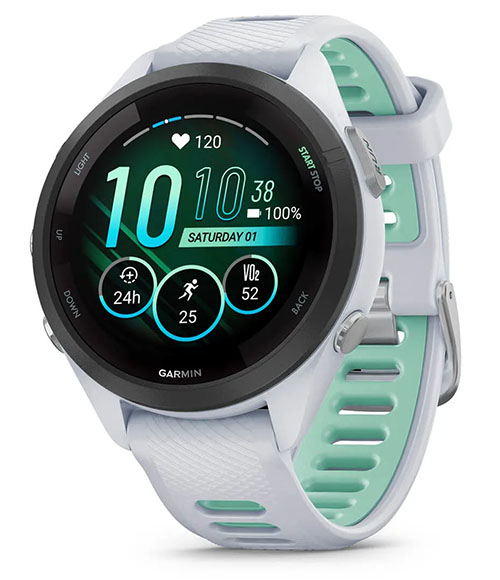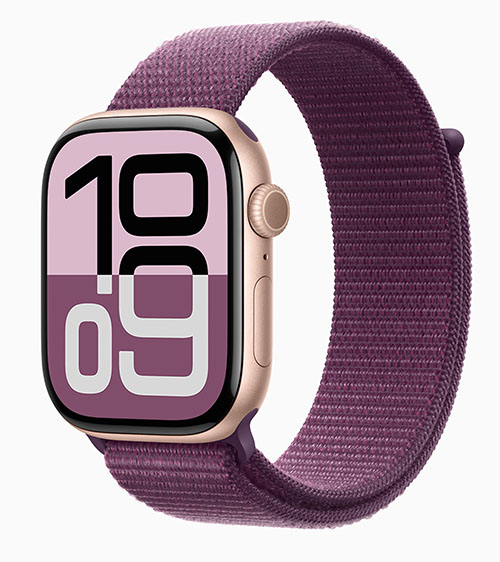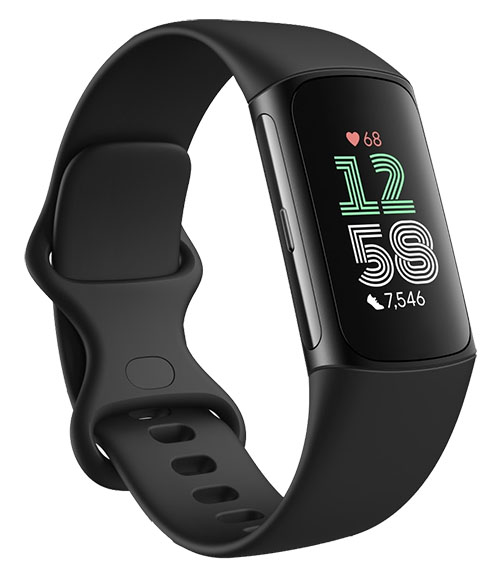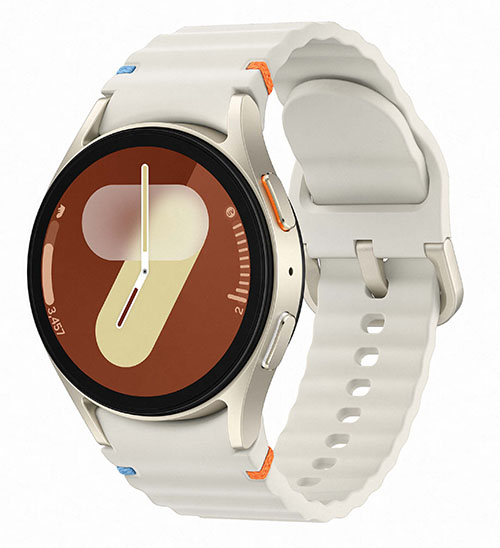Our ratings compare a range of smartwatches and fitness trackers based on customer satisfaction, as rated by Australians, so you can find out what other Aussies think about their smartwatch or fitness tracker all in the one place.
Canstar Blue surveyed 947 Australians for their feedback on the smartwatches and fitness trackers they’ve purchased in the last three years. This refers to wearable watches/devices with digital capabilities (not analogue watches).
Survey respondents are asked to rate their satisfaction with their smartwatch/fitness tracker brand from zero to 10, with zero meaning extremely dissatisfied and 10 meaning extremely satisfied. Smartwatch and fitness tracker brand satisfaction is rated on the following criteria:
The winning brand is the brand that receives the highest Overall satisfaction rating. All the scores from the Overall satisfaction criteria are then combined and averaged to determine the overall winner.
To qualify in the ratings results, brands must have received a minimum of 30 responses to be included. Therefore, not all smartwatch/fitness tracker brands in the market will be compared in this survey. Brands rated in this survey are listed below in order of best overall satisfaction.
Find more information on our Most Satisfied Customers ratings.
Not sure which smartwatch/fitness tracker to buy? Check out our buying guide below.
 Garmin was our 2025 winner, scoring five stars in most categories including overall satisfaction, battery and charging performance, design, durability and value for money. It also scored four stars for user friendliness.
Garmin was our 2025 winner, scoring five stars in most categories including overall satisfaction, battery and charging performance, design, durability and value for money. It also scored four stars for user friendliness.
There’s no doubt that Garmin is a leader in the smartwatch/fitness tracker space. The brand has a huge range of devices, with prices starting at around $100 AUD for kids’ wearables and up to over $2,000 AUD for premium watches.
Garmin’s range of wearables cover a variety of needs and uses, from fitness-specific trackers to smartwatches designed for pilots. There’s also a range of hybrid smartwatches, which look like an analogue watch, but with digital capabilities. No matter your needs or price range, it’s likely that Garmin will have a device to suit.
 Apple took out second place, with five stars for user friendliness and design, and four stars for both overall satisfaction and durability. It scored three stars for battery and charging performance and value for money.
Apple took out second place, with five stars for user friendliness and design, and four stars for both overall satisfaction and durability. It scored three stars for battery and charging performance and value for money.
Apple is a big player in the smartphone space, but has also forged a strong following with its range of smartwatches, under the simple name Apple Watch. However, like with many of Apple’s products, its range of smartwatches are typically on the more expensive end.
For the budget-conscious, Apple offers its Apple Watch SE, which is generally a little smaller than the other watches and includes more basic features to account for its cheaper price, starting at around $400 AUD. On the more expensive end, Apple offers the Apple Watch Ultra 2, with a $1,400 AUD starting price point. This watch features all the bells and whistles that Apple has to offer, with a more durable build, larger screen and more accurate GPS.
 Fitbit came in third place, scoring three stars for overall satisfaction along with user friendliness and design. It scored four stars for battery and charging performance and durability, while it scored its only five-star results for value for money.
Fitbit came in third place, scoring three stars for overall satisfaction along with user friendliness and design. It scored four stars for battery and charging performance and durability, while it scored its only five-star results for value for money.
As a leading brand in the fitness tracking space, Fitbit has been in the game since 2007 and has built a reputation for its wearable devices with a focus on fitness and health. The company was bought by Google in 2021, and since then, Google has used Fitbit’s tech to build its own smartwatch under the Pixel brand.
Fitbit is still a strong force in this space, with smartwatches and fitness trackers designed to suit a range of needs, including activity trackers for kids. Prices start at around $200 AUD for basic and go up around $450 AUD for its smartwatches. Watches under the Google Pixel brand sit around the $400 AUD to $600 AUD price range.
 The 2024 winner, Samsung, dropped down to fourth spot, scoring three stars for overall satisfaction along with user friendliness. It scored four stars in all remaining categories including battery and charging performance, design, durability and value for money.
The 2024 winner, Samsung, dropped down to fourth spot, scoring three stars for overall satisfaction along with user friendliness. It scored four stars in all remaining categories including battery and charging performance, design, durability and value for money.
Samsung selection of smartwatches are released under the ‘Galaxy’ name. Like Apple, the Galaxy watches are typically more on the more expensive end, but come packed with features.
Samsung offers its standard Galaxy Watch range, which is updated every year, and it also offers an even more premium experience with its Galaxy Watch Ultra — both of which are on the more expensive side. If you’re on a budget, you might prefer to look at the Galaxy Watch FE, designed to be a more affordable alternative. Prices start around $400 AUD and go up to over $1,000 AUD.
Not all smartwatch and fitness tracker brands have qualified for our ratings based on the minimal sample size, but that doesn’t mean that the above four brands are the only companies worth considering. There are many smartwatches and fitness trackers on the market, some made by tech brands and others made by watch brands.
Smartwatches and fitness trackers can also offer different features and functions designed for a range of usage needs. Some devices might be focused towards serious fitness and activity enthusiasts with quality GPS and activity tracking technology, or maybe the ability to go underwater. Others might be more on the smartwatch end, with a focus on a wearable device that is an extension of your smartphone and includes apps, NFC pay technology and more.
If you’re considering a new smartwatch or fitness tracker, here are some brands you might want to consider.
Smartwatches and fitness trackers are becoming an important tech accessory for many Aussies, with 44% primarily purchasing their device to track their fitness and/or health and 16% regularly use their watch’s pay technology, while 38% chose to buy the same brand of smartwatch as their phone.
For many of us, a smartwatch or fitness tracker is an essential part of our daily life, both as a standalone product, and when it works in tandem with our smartphones. However, it can be hard to know what to look for when buying a smartwatch or fitness tracker, so check out our buying guide below for more information.
While smartwatches and fitness trackers have some similarities, and then there are hybrid watches. All three have a lot in common, but they also have their differences, and understanding that can help you make a decision as to which type of wearable will be right for you.
There is of course some crossover between smartwatches and fitness trackers, but ultimately it comes down to what is the main focus of the device. Often fitness trackers are smaller wearables, while smartwatches may have a bigger screen more like a traditional watch.
Some smartwatches have cellular capabilities, meaning that you can leave your phone at home and still have access to calls and messages, but often these will require a separate SIM card and plan to your mobile phone plan.
It’s also worth noting that some smartwatches may have a heavy focus on fitness/activity and health monitoring, with some brands cramming these features into smartwatch tech rather than releasing separate fitness trackers. However, these are often rather expensive devices and best suited to serious athletes and adventure enthusiasts.
Ultimately, you need to decide on which features are most important to you and how you want your watch/tracker to fit into your day-to-day life. If you specifically want something to monitor your activity/health during exercise, a fitness tracker might be the way to go. However, if you want something that is more of an extension of your smartphone and that you’ll wear all day, a smartwatch or hybrid watch might be the better option.
The price of smartwatches and fitness trackers varies greatly between brands and capabilities. Typically the more simple devices, such as those offering basic fitness/health tracking and/or basic smartwatch capabilities, can cost around $100 or so, including activity trackers for kids.
Then on the more expensive end of the spectrum, there are the bigger devices with larger screens, more advanced technology and more capabilities, with these devices costing between $1,000 and $1,600.
Of those we surveyed, 73% owned a smartwatch, 19% owned a fitness tracker and 5% owned a hybrid watch. While some Aussies bought their device primarily for health/fitness reasons (44%) and others to replace a traditional watch (27%), 13% of those surveyed said they don’t wear or use their device as much as they thought they would. So if you’re still on the fence about what device you want — or if you need one at all — here are some pros and cons to smartwatches and fitness trackers.
| Pros | Cons |
|---|---|
|
|
There is much to consider if you’re looking to buy a smartwatch or fitness tracker. While our ratings may help you get an idea as to what other Aussies think of their smartwatch or fitness tracker brand, it’s still about finding a product that will best suit your needs.
Considering the wide product range available, this also means a wide range of prices, so you might want to consider setting a budget first. According to our survey, the average amount Aussies pay for their smartwatch or fitness tracker is $408, striking the balance between the cheaper devices and the more premium and expensive ones.
Setting a budget can help you focus on what kind of device you’re looking at. While it may be tempting to want to best features on the market, or you may consider some features a nice-to-have, a budget may help you to decide between whether a smartwatch or fitness tracker will best suit your needs, and also which features are most important to you. It can also help you decide which brands you might want to consider, as some brands/products may be out of your price range. Ultimately, you might find you need to compromise on some features or brands, to find a device within your price range.
Perhaps the biggest decision you’ll need to make is which kind of device will best suit your needs — a smartwatch, fitness/activity tracker or a hybrid watch. Consider what you think you’ll primarily use your watch for, and then focus on which device will best deliver those features to you.
Out of those we surveyed, 60% used their device to track their general health (heart rate, etc), 31% used it to track their time/GPS/calories burned during a workout and 6% used it primarily to track their sleep. If one or more of these functions are important to you, then it helps to compare devices where health/fitness/sleep tracking is a main priority for the brand or device.
You might also want to consider how often you plan to wear the device (such as all day or primarily during exercise/workouts) to determine what kind of device will best suit you. If you plan on wearing it all day, a device that has smartwatch capabilities, such as NFC payments or media controls, might offer the most convenience.
Ultimately you’ll want to consider what features are most important to you to determine what type of device will best suit your needs. While it may be tempting to go for something with all the bells and whistles, if you don’t end up using your device as much as you intended, or you have a stricter budget, focusing on those essential features can help you narrow your search.
Considering this is a device you’ll be wearing all day and/or during workouts, comfort and design are pretty essential things to consider. If you want a larger screen, a smartwatch may be your preference, and these can come in many different styles — from square screens with simple designs, to devices with round screens that emulate a traditional watch. Some devices also come in different colours and materials, and may have the ability to change the watch band. If you feel you’ll want to change things up from time to time, you might consider devices that are easier to personalise.
You’ll also want to consider the size of the device and what will be most comfortable to you. Slimmer-designed fitness trackers might be the preference if you will primarily use your device during workouts and don’t want a large device on your wrist. Certain activities such as yoga and Pilates, for instance, might be made more difficult if you have a chunky smartwatch on your wrist. Consider how and when you’ll use your device to help determine which design and style of device will best suit you.
Once you have a general idea of what you want from your smartwatch or fitness tracker, it helps to compare a wide range of brands and products to find something that will best suit your needs. While 36% of those we surveyed bought their device because it was the same brand as their phone, many devices are compatible with a range of smartphones, so you might not be limited to one brand.
If you have an idea of what features and functions are important to you, along with a strict budget, comparing a wider range of brands and products may help you to narrow down what device is going to work best for you and where you can find the best value for money. Just make sure that any device you purchase will be compatible with your phone, as many smartwatches/fitness trackers will require you to download an app to be compatible with your handset and for setup.
You can buy smartwatches and fitness trackers from a range of stores, including tech-specific stores, watch stores, sports/outdoor specialist stores and even some telcos (along with any SIM card/plan you may need if it’s a cellular device). Keep in mind that some brands may only be available from one store (such as a Kogan-branded device being available only from Kogan). Here are some retailers that sell smartwatches and fitness trackers:
Smartwatches and fitness trackers might be an important accessory in our daily lives, and for some, and essential item for keeping track of health and fitness. So, there’s a lot to consider when you’re looking to buy a smartwatch/fitness tracker beyond the brand, features and design. Consider what features and capabilities are most important to you and what your budget is, and maybe consider what brands have proven popular with Aussies, to help you find the best wearable device for your needs.

Emma Bradstock has been an authority on consumer phone, internet, technology and streaming markets in Australia for over five years, with a dedication to providing Aussies with all the information they need to make better purchasing decisions. She holds a Bachelor of Arts in Communications and Media from Macquarie University and has a decade of professional writing experience in print and digital media.
Meet the Editorial Team

Samantha Howse is Canstar Blue’s Consumer Research Specialist, coordinating the consumer research program behind our customer satisfaction awards across Canstar and Canstar Blue in Australia and New Zealand. Sam has earned a Bachelor of Business (Marketing) from Griffith University and, with seven years in market research and two years in marketing, she is experienced in survey design, implementation and analysis, coupled with an understanding of marketing principles and best practice.
Meet the Research TeamHere are past winners of Canstar Blue’s Most Satisfied Customers – Smartwatches and Fitness Trackers ratings:
^By clicking on a shop online, compare now, buy online, more details, go to site or check latest prices button, you may leave Canstar Blue and be taken to a referral partner to compare. Canstar Blue may be paid for this referral. You agree that Canstar Blue’s terms and conditions apply to this referral. If you click on a brand that is not a referral partner, you will be taken to a brand page on Canstar Blue.
Canstar Blue may earn a fee for referrals from its website tables, and from sponsorship of certain products. Fees payable by product providers for referrals and sponsorship may vary between providers. Generally, sponsorship fees are payable in addition to referral fees. Sponsored products are clearly disclosed as such on website pages. They may appear in a number of areas of the website such as in comparison tables, on hub pages and in articles. Sponsored products may be displayed in a fixed position in a table, regardless of the product's rating, price or other attributes. The table position of a Sponsored product does not indicate any ranking or rating by Canstar. The table position of a Sponsored product does not change when a consumer changes the sort order of the table. For more information please see How Are We Funded.
*Prices correct as of publication date.
